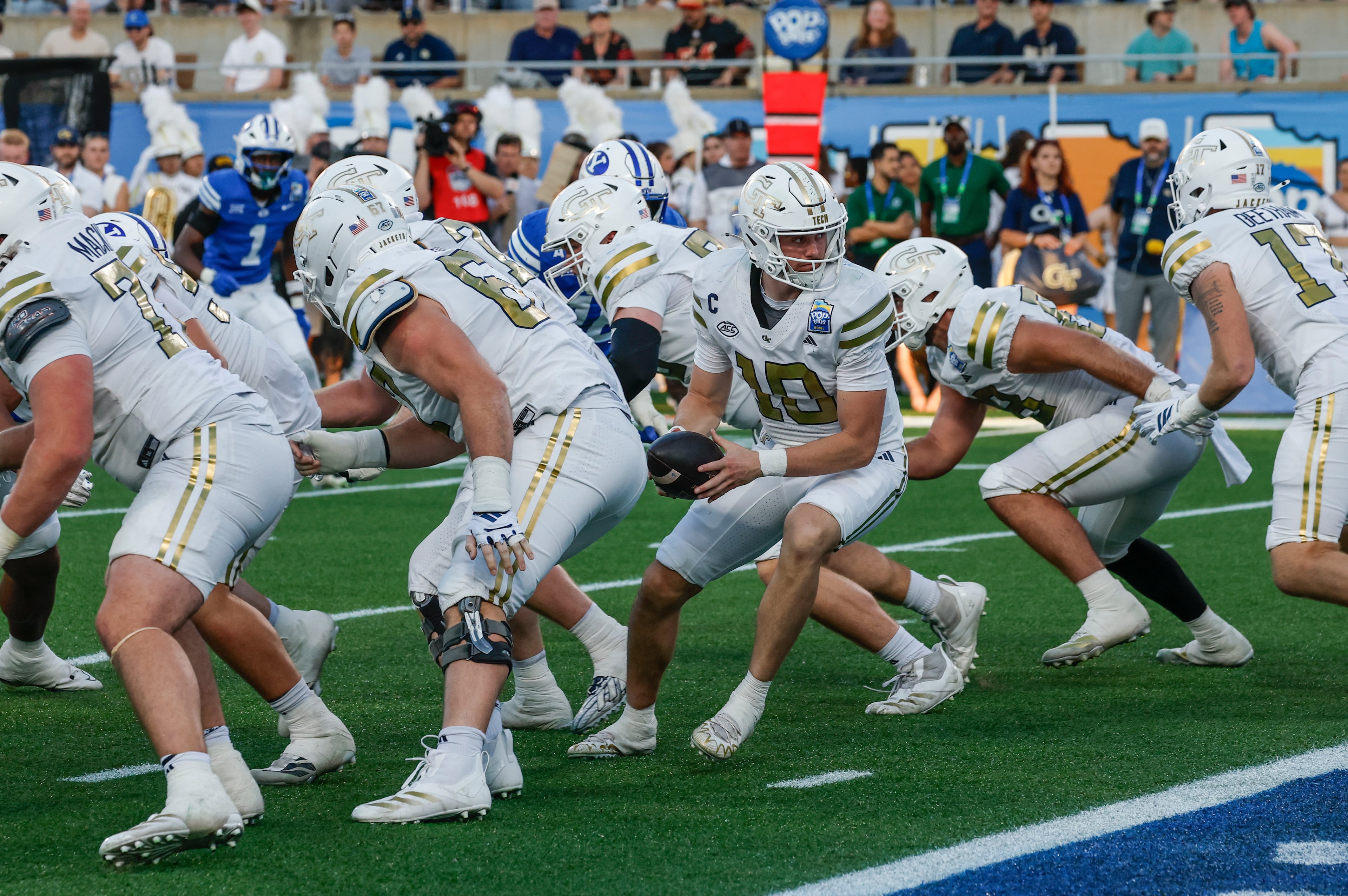Adjusted revenue distribution plan expected for ACC

In 2011, when the ACC faced the possibility of splintering, the conference held together when several presidents of member schools committed to each other to stick together. One ultimate result of their bond was the conference’s grant-of-rights agreement that has been credited with keeping the conference together in the years since it was signed in 2013 and updated in 2016.
“Several of the presidents got together, and we agreed that if we stuck together, the ACC would survive and, in fact, could thrive,” former Georgia Tech President G.P. “Bud” Peterson said in an interview with The Atlanta Journal-Constitution in 2022.
To whatever degree the 15-member conference faced the possibility of fracture in recent months, order appears to have been restored again at the conference’s annual spring meetings this week in Amelia Island, Florida. This time, it was resolved after officials from several schools again bound themselves to each other, but this time as they considered their exit options.
This year’s meetings were held following reports from Sports Illustrated and Action Network that seven conference members – Clemson, Florida State, Miami, North Carolina, N.C. State, Virginia and Virginia Tech – met with their lawyers to examine how unbreakable the grant of rights actually is.
One conclusion – evidently pretty unbreakable. A school that leaves the ACC would be required to pay an exit fee of about $120 million and forfeit the broadcast rights to its home games. The agreement appears to remain quite watertight.
And as school and conference officials departed the Ritz-Carlton – including Georgia Tech athletic director J Batt – the ACC remained intact.
“What I’ve been told is we’re all in this thing together, emphatically,” ACC commissioner Jim Phillips told media at the conclusion of the meetings Wednesday. “We believe in the ACC, we believe in where we’re going and we want to continue to work together.”
Of course, the healthiest and strongest unions don’t require public affirmations of their commitment. And Phillips and others downplayed the implications of member schools examining the integrity of the document that binds them together. Phillips said that it was not news to him that these discussions were taking place.
In the seismic environment of major college athletics, it does behoove each school to consider its alternatives, including Georgia Tech, though it evidently was not a part of the group now known in ACC circles as “the Magnificent 7.”
“It’s not a warning sign, to me, from the standpoint of something bad may happen,” Phillips said. “These are schools that are under a lot of stress and a lot of pressures. I understand that, I really do.”
Regardless, the league is moving toward an adjustment of its revenue distribution. To this point, money received by the conference, mostly from its contract with ESPN, has been shared equally. One possibility is rewarding teams that qualify for the College Football Playoff and the NCAA men’s basketball tournament.
At least from one perspective, it would be a concession to the saber rattling performed by the likes of Florida State athletic director Michael Alford and other colleagues who warned that the league could not continue competing with the SEC and Big Ten with conference revenue distributions as much as $30 million less than those conferences (on a per-school basis). From another viewpoint, it could be considered an added incentive for the league’s teams to increase their level of competitiveness.
In an ESPN report, Alford said that the “success initiatives” could be worth more than $10 million annually.
“The ADs and the universities are very unified,” Alford said in a reversal of his stance after the conference’s winter meetings. “So we’re thrilled about being in this league, and we want to stay in it.”
In hindsight, it’s not likely that schools were going to leave the ACC at this time, and the social-media speculation that ran amok about which school was headed to which conference was unwarranted. As has been noted, if the grant of rights were breakable, it likely would have happened by this point. That said, though, it became clear that the gripes were many.
“If you’re going to get to an end result, then along the road you’re going to have some of these bumps, and you’re going to have some of these things that you have to work through,” Phillips said.
So a conference that, despite its financial shortcomings, has managed to send Clemson to the CFP six times in the event’s nine years and in the past five NCAA men’s basketball tournaments has had more Final Four appearances (four) than the Big Ten and SEC combined (three) will move forward.
And, almost certainly, the same concerns will be revisited again.
“We’ve followed it for 100 years – there’s been conference expansion and retraction and schools moving from one conference to the next,” Phillips said. “I don’t think that changes.”



